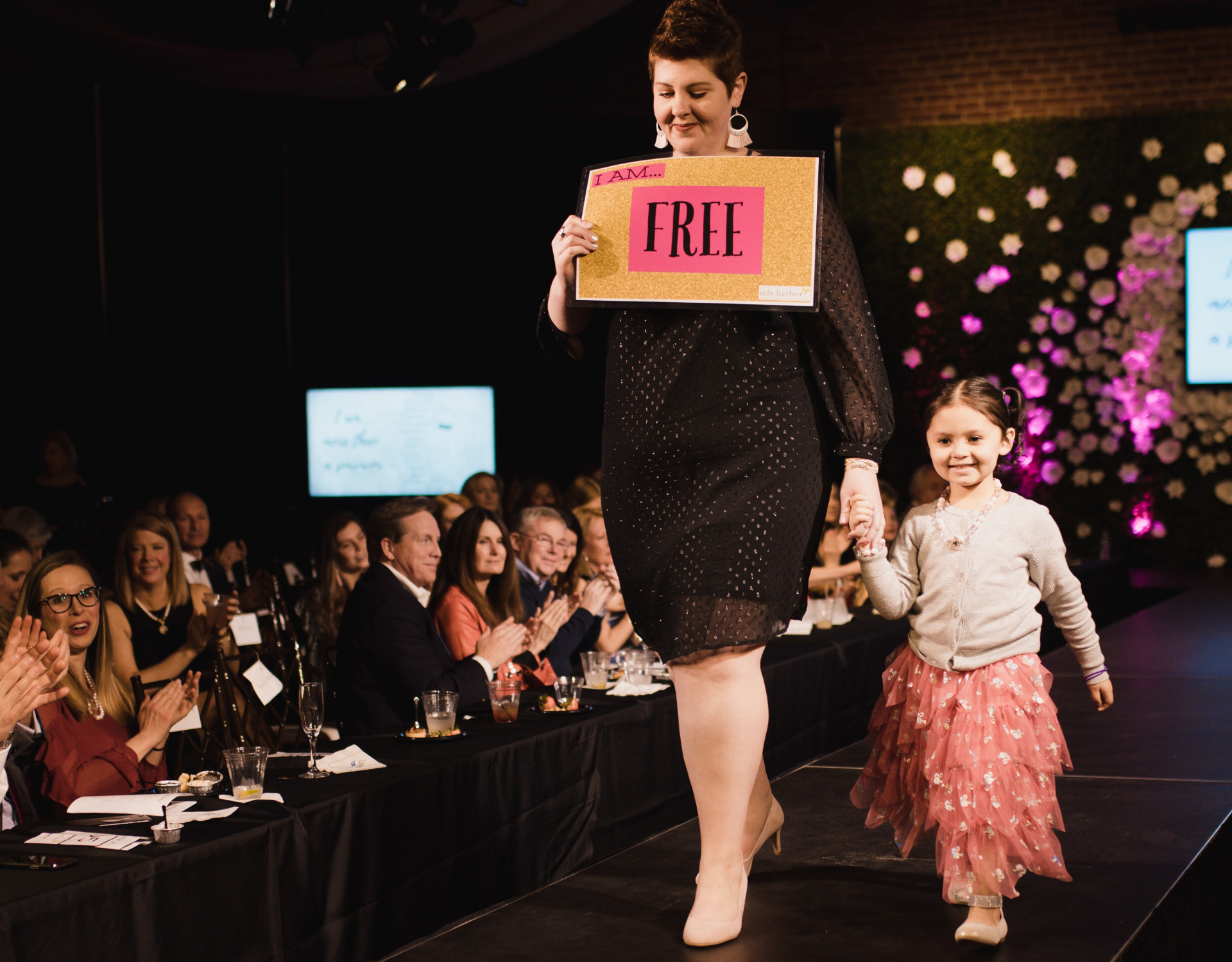By Chelsey Walker, Former Greenville County REP Prevention Coordinator (June 2015-June 2017)
In the classroom, we often discuss past exposure to violence as a potential risk factor for intimate partner violence (IPV.) We brainstorm some of the effects witnessing or experiencing abuse may have on a young person. Common responses include an increased likelihood of being a victim or abuser, mental health issues, and aggression and poor coping skills, to name a few. We also explore ideas for healing from some of these effects, and ultimately, breaking the generational cycle of domestic violence.
As a Prevention Coordinator at Safe Harbor for the past two years, this conversation has always been one of the most difficult for me to facilitate with students. It’s all too real and personal for me. I’ve been attempting to break the cycle of abuse in my family since my pre-teen days, and it wasn’t until recently that I’ve felt fully equipped to do so. I would like to share my story and the lessons I’ve learned working in violence prevention.
My family is largely made up of strong, hard-working women who are all survivors of domestic violence. My grandfather physically and emotionally abused my grandmother and her five children for over two decades. By the time I was 18, there had been a total of thirteen divorces amongst my grandmother and her five children, a few restraining orders, and a couple late-night rescues executed by my mother. I had concluded there was a family curse, and as the oldest member of the new generation, I appointed myself to be the almighty “curse breaker.”
As a teenager witnessing these events, I was consumed with anger. Why did my aunts stay? Why did this keep happening? Why didn’t they know better?
I understand now that these thoughts came from a lack of knowledge about the dynamics of IPV and trauma, as well as an overwhelming fear that I was going to see the same fate. I saw myself in these women, and I was terrified. How could I be any different than the women I looked up to? What made me any more worthy of respect and love?
During my second year of college, I started an internship with the violence prevention team at the local domestic violence agency. At 19 years old, I received my first education on the root causes of IPV, the warning signs of dating violence, and the skills necessary to maintain a healthy relationship. I was provided a safe space to examine my experiences, and I was challenged to recognize unhealthy perspectives and behaviors that were preventing me from supporting my family and peers.
Sounds like a therapy session, right? Not quite. This all began in the classroom while observing presentations for my internship. Much like the presentations, we do across the Upstate with the Relationship Education Project (REP) at Safe Harbor.
Six years later including two years working at Safe Harbor, here are a couple lessons that I’ve learned…
First, not everyone responds to domestic violence exposure in the same way. My response was mostly internal. I programmed myself to be invincible and fearless. I separated myself from anything that remotely resembled a “victim.” This attitude has often led me to play it safe with love. Pushing partners and friends away at the first sign of anger or conflict. Not allowing myself to be truly vulnerable with someone for fear that exposing my authentic self would be too risky. I have held my loved ones, and most importantly myself, to an unrealistic standard.
Secondly, domestic violence can happen to anyone. Yes, it can even happen to strong women, like those in my family. The typical idea of strong vs. weak is not applicable or helpful in understanding domestic violence. Abuse isn’t about strength; it’s about power. Anyone can exercise abusive power and control in a relationship, including women.
With this understanding, I don’t have to be angry or afraid of the “curse” anymore. I’ve found the antidote, and I take it on a regular basis. It consists of a combination of knowledge about trauma and the cycle of violence, patience, open communication, forgiveness, lots of self-care, and a dash of adventure.
As I leave Safe Harbor this month and begin graduate school in August, I want to express my gratitude to everyone who has been a part of my journey. Thank you for pulling me out of my comfort zone when I put up walls. Thank you for learning and growing with me. I will always be a student in the domestic violence classroom.
Violence prevention work has allowed me to heal. It has given me purpose. It has made me a better friend, a better sister, a better daughter, a better niece, a better advocate, and one day it will make me a better partner, too. If you’ve ever questioned the long-term outcomes of prevention education, please allow my story to be a testament to its success. Prevention truly does change lives.



